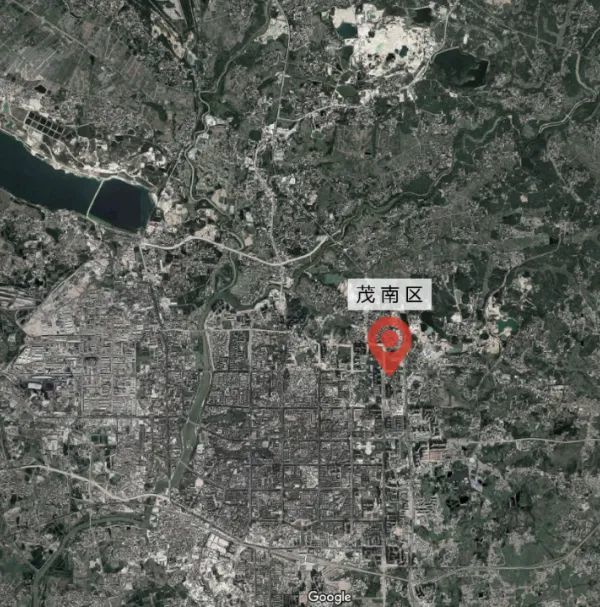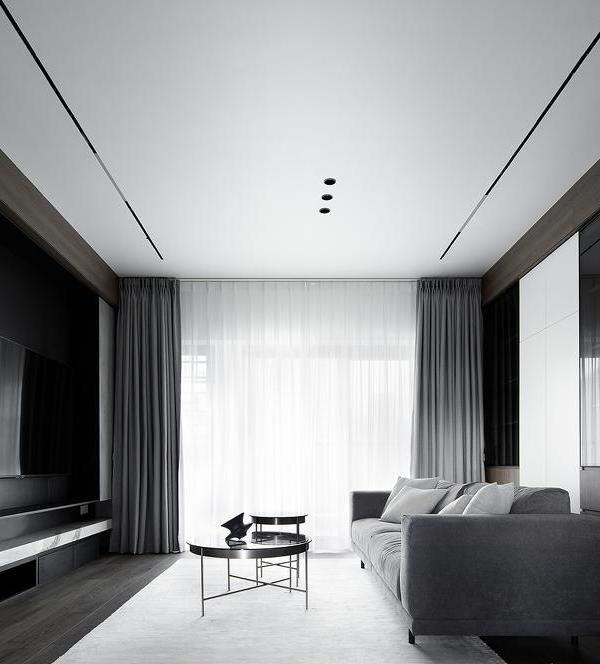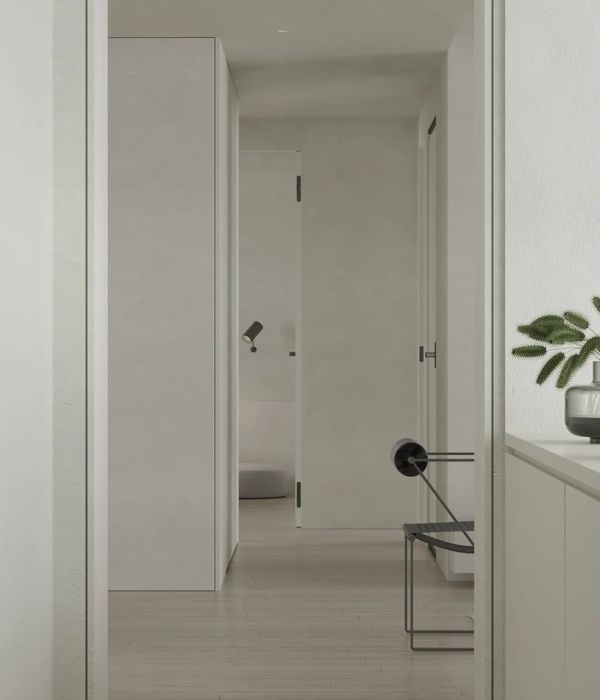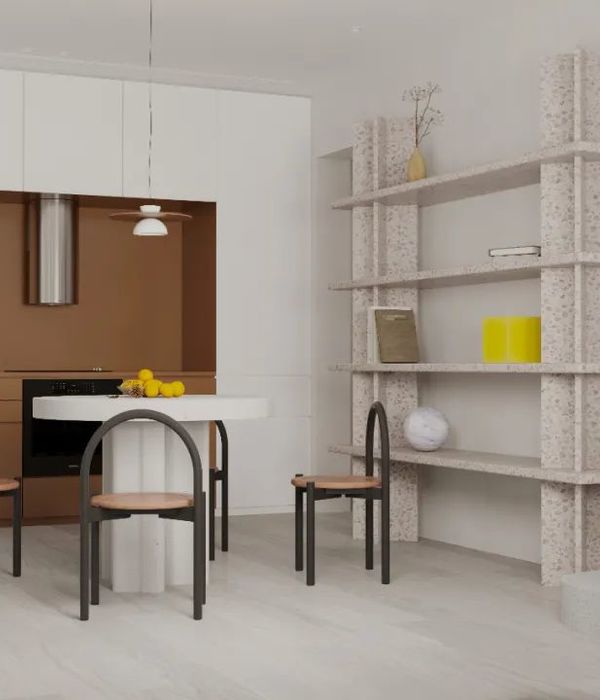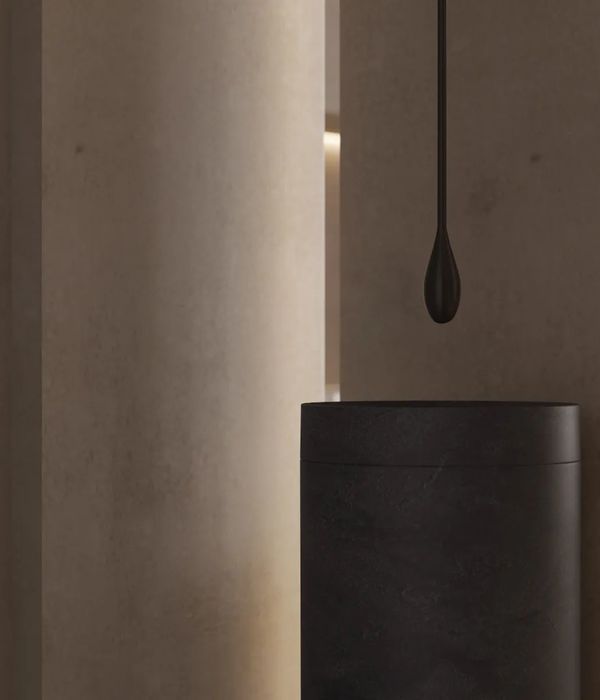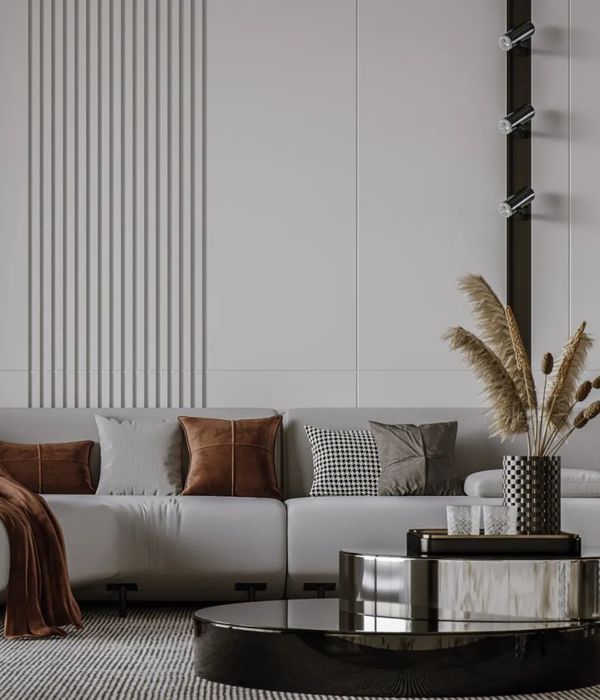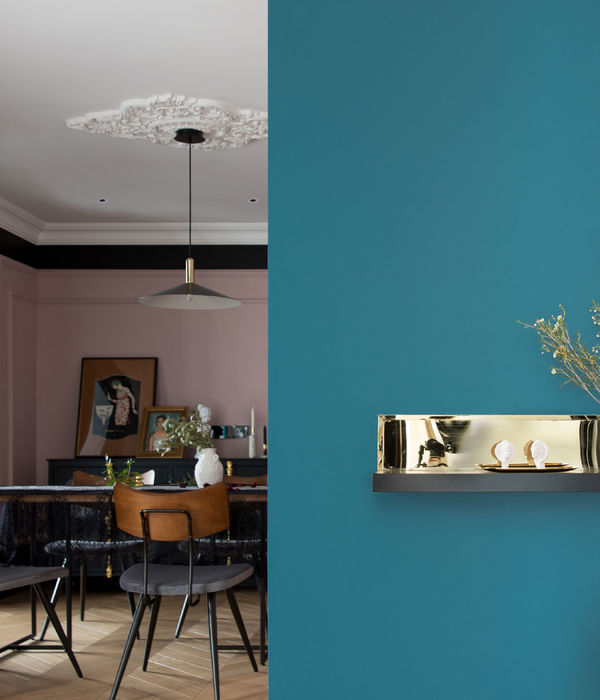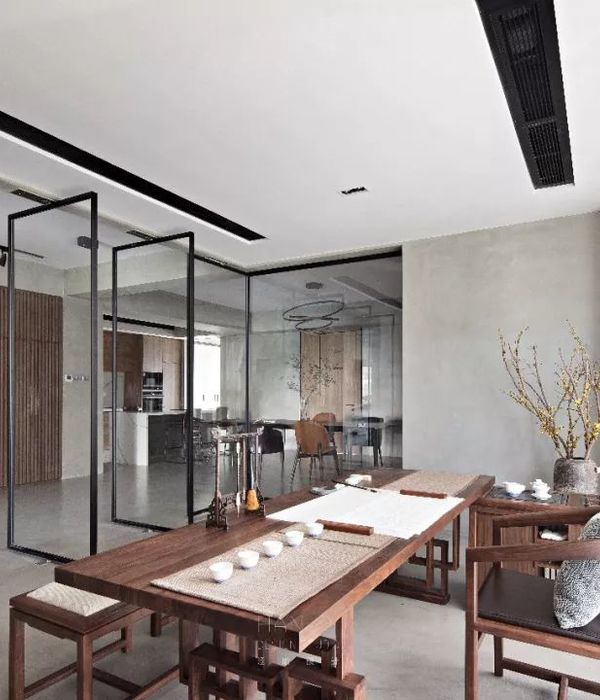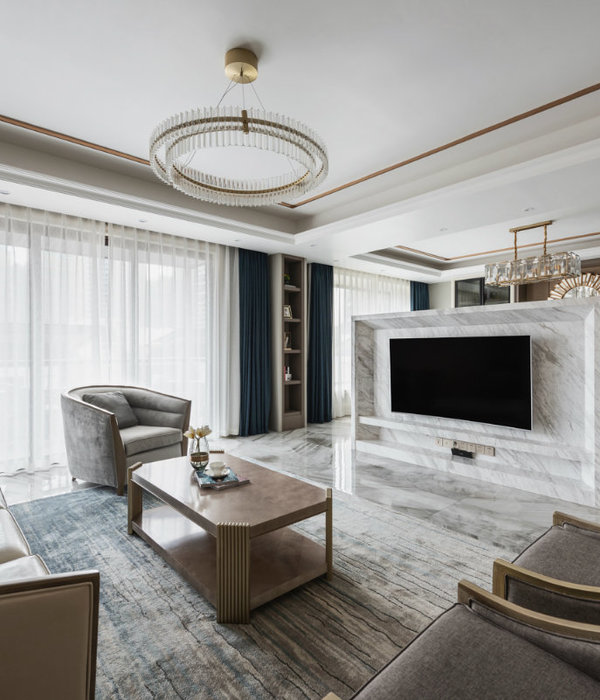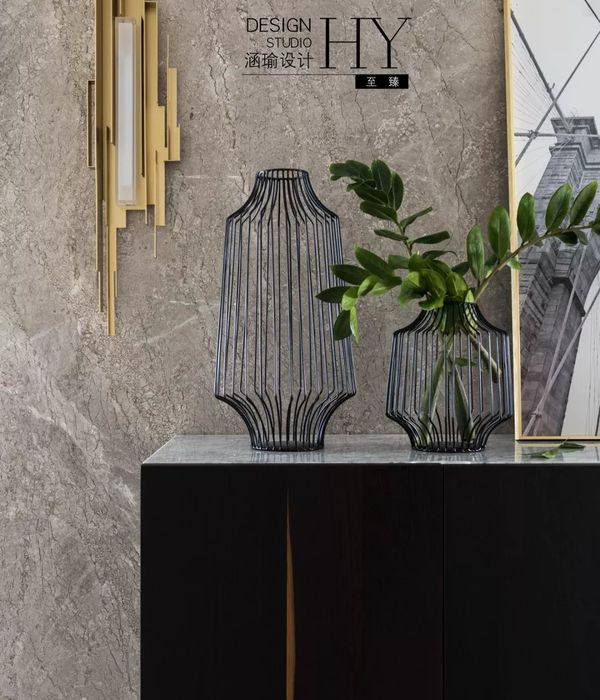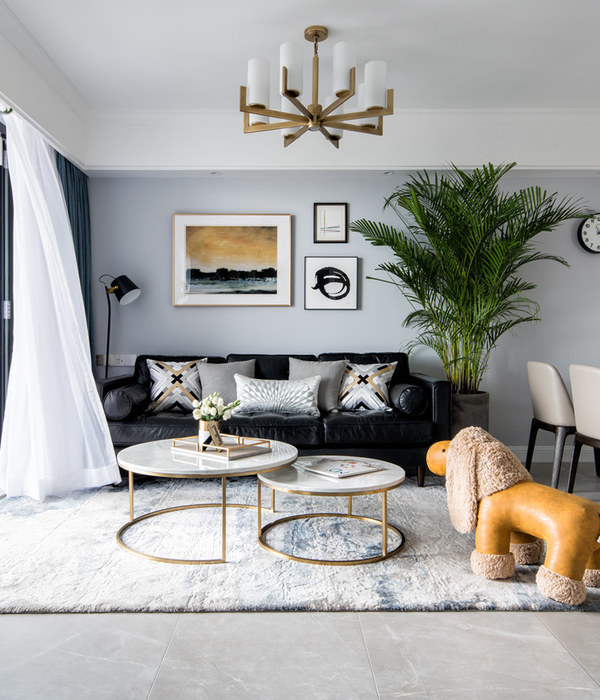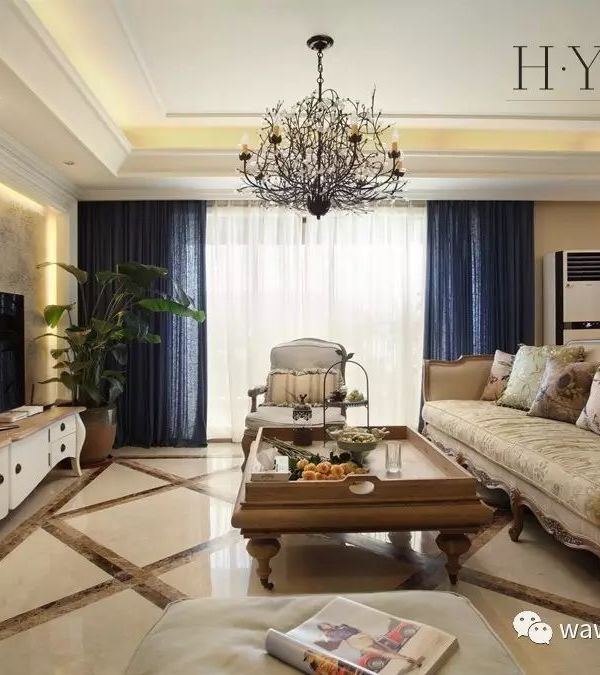在本项目的基地上,原城市建筑师Aleksander Wolodarskihe曾规划了两栋大楼,但并未实行,Norra Tornen继承了他设计的建筑轮廓。大楼不是一块直指天空的平板,而是由不同高度的部分组成,逐渐升高,不至在城市中显得过于突兀。而最终的设计方案则让每间公寓都可以拥有开阔的户外空间,避免了将外立面照搬到建筑形式之中。
▼项目鸟瞰,aerial view of the building © Photograph by Laurian Ghinitoiu, Courtesy of OMA
▼建筑外观,external view of the building © Photograph by Laurian Ghinitoiu, Courtesy of OMA
The Norra Tornen project started with two inherited building envelopes, the remains of a cancelled project initiated by the former city architect Aleksander Wolodarski. Each a kind of ‘crescendo’ composition of different heights – neither slab nor tower – prohibit the unfolding of an uncompromised typology. Conversely, the opted program, apartments with an emphasis on large outdoor spaces, prevented too literal a translation of the envelopes into architectural form.
▼建筑在城市中既突出,又融合,the building stands out in the city while being harmony with the surroundings © Photograph by Laurian Ghinitoiu, Courtesy of OMA
弗洛伊德的理论中认为,为了超越最初的恐惧,我们要积极热情地拥抱无可避免之物。在这个项目中,设计师必须要接受规划好的大楼外观,并在此基础上做出突破。他们利用横向分割对大楼原本单调的纵向分割进行了补充,创造了一系列凹进的户外空间和突出的起居室,形成丰富多变的立面纹理。建筑材料选用带肋纹的混凝土,混以不同颜色的石子,体现出野兽派建筑的特征。这与基地并非毫无联系,据建筑评论家Reyner Banham说,野兽派建筑这一说法是由瑞典建筑师Gunnar Asplund的儿子Hans Asplund,在一封寄给英国建筑师友人的信件中描述自己同事的作品时提出的。
▼在原本规划的轮廓下进行设计 © OMA design under the original envelope
▼水平分割形成凹进突出的建筑空间 © OMA rich architectural spaces created by horizontal segmentation
Through a kind of ‘Freudian flight forward’ – a passionate embrace of the inevitable in order to conquer and overcome one’s initial fears – the prescribed building envelope was adopted as a given. Its initial vertical segmentation was complemented by a second, horizontal segmentation that gives the buildings’ exterior a single, homogeneous treatment: a rough skin, formed through an alternating pattern of withdrawn outdoor spaces and protruding living rooms. The chosen material, ribbed colored concrete brushed with exposed multi-colored aggregate pebbles, echoes brutalist architecture and that is not by chance. According to architecture critic Reyner Banham, the term brutalist architecture was invented by Hans Asplund, the son of Gunnar Asplund, when referring to a design of his studio colleagues in a letter to his British architect friends.
▼从街道看向建筑,横向分割使建筑立面更为丰富,与环境更协调,view of the building from the street, the horizontal segmentation makes enriches the facade, corresponding to the scale of other houses © Photograph by Laurian Ghinitoiu, Courtesy of OMA
▼凹进突出的阳台和客厅,肋纹混凝土和石子使建筑表面富有质感,withdrawn outdoor spaces and protruding living rooms, ribbed concrete brushed with exposed pebbles gives a special texture to the building © Photograph by Laurian Ghinitoiu, Courtesy of OMA
Narra Tornen项目采用预制混凝土板,这项技术使得工程可以在5度以下——这种温度下现浇混凝土就无法流动了——的环境中继续进行。此外,预制混凝土还大幅度削减了建造开支,使得墙地比接近1的设计方案成为了可能。而在一般的项目中,0.5的墙地比所需的造价就会让开发商却步。由此节省下来的经费可以被用来创造多朝向、大开窗的独特户型,这对于瑞典这个一年中一半时间都缺乏阳光照射的国家来说尤为珍贵。矗立于二战之前建造的住宅群之中,Norra Tornen项目为斯德哥尔摩带来了新的生活方式,人们可以在高密度的生活中享受属于自己的户外空间。
▼运用预制混凝土技术进行建造,construction using prefabricated concrete panels © OMA
Concrete at Norra Tornen comes in the form of prefabricated panels – a construction technique that allows work on the building site to continue even below the five-degree Celsius limit which prohibits in situ concrete pouring. Prefabrication also significantly reduced construction costs. This way a design with a wall-to-floor ratio close to 1 – most developers would be discouraged by a 0.5 ratio – was suddenly not an unthinkable proposition. The investment could be channeled in creating apartments with unique layouts, multiple orientations and extra square meters of windows – a precious asset in a country with scarce daylight for half of the year. In a city center with a housing stock largely built before the Second World War, Norra Tornen introduces a new way of living which brings together density with the possibility to enjoy outdoor space (Stockholm ranks fourth among the cities with the highest air quality in the European Union).
▼夜景,每间公寓拥有大面积开窗,灯光使得建筑表面更为丰富,night view, apartments with large area windows, various lighting further enriches the building facade © Photograph by Laurian Ghinitoiu, Courtesy of OMA
创新塔楼中包含182间公寓,从44平米的一室住宅到271平米的顶层公寓,可以满足不同人的居住需求。大部分房间为两室或三室,面积在80到120平米之间。除了居住,建筑中还设有一个放映室,一个聚会用餐厅,一个客房公寓,一个配有桑拿的健身房和休息区,以及底层配套商业空间。螺旋塔楼包含138间公寓及其他便利设施。
▼业态示意图,programme analysis © OMA
The Innovationen Tower comprises 182 units ranging from 44 sqm one-bedroom apartments to a 271 sqm penthouse on the top floor, with the majority consisting of two- or three-bedroom apartments of 80 to 120 sqm. The residential units are complemented by a cinema room, a dinner room for parties and celebrations, a guest apartment, a gym with a sauna and a relaxation area, and retail space at the ground floor. The Helix Tower includes 138 units, plus amenities.
▼建筑入口,entrance © Photograph by Laurian Ghinitoiu, Courtesy of OMA
▼入口大堂,lobby © Photograph by Laurian Ghinitoiu, Courtesy of OMA
▼公寓室内,拥有充足的户外空间,apartment with outdoor space © Photograph by Laurian Ghinitoiu, Courtesy of OMA
▼户外空间,建筑独特的表面材质给人以自然温馨之感,outdoor space, the unique material gives people a natural and warm feeling © Photograph by Laurian Ghinitoiu, Courtesy of OMA
▼从公寓欣赏城市景观,view of the city from the apartment © Photograph by Laurian Ghinitoiu, Courtesy of OMA
两栋大楼的高度分别为125米和110米,是斯德哥尔摩市中心最高的住宅楼。它们位于斯德哥尔摩北部的Hagastaden,这里是一个围绕Karolisnka学院发展起来的新区,两栋大楼正是这座城市的门户。设计师将原本规划的纪念性建筑物彻底转变成了以家庭生活为重的建筑。多种多样的公寓让曾经死板的结构呈现出惊人的活力,甚至可以说是展现出了人性的光辉。
▼夜景,night view © Photograph by Laurian Ghinitoiu, Courtesy of OMA
At a height of 125 meters, and 110 meters, respectively, the two towers are the highest residential buildings in Stockholm’s city center. Located in Hagastaden, a new district in the north of Stockholm developed around the Karolisnka Institute (which awards the Nobel Prize in Medicine), they stand as a gate to the city. However, the manipulation of the initial building envelopes radically transforms their initial implied architecture of monumentality. It gives way to an articulation of domesticity. A once formalist structure comes to house apartments that are surprisingly informal…one could even say humanist.
▼大楼成为城市的门户,the building stands as a gate to the city © Photograph by Laurian Ghinitoiu, Courtesy of OMA
▼总平面图,site plan © OMA
▼螺旋塔楼标准层平面图,typical plan of Helix Tower © OMA
Project: Norra Tornen Timeline: Competition: 2013, Construction start: December 2015, Occupancy: September 2018 Client: Oscar Properties Address: Torsplan 8, 113 65 Stockholm, Sweden Program: 320 apartments, Retail Partner in Charge: Reinier de Graaf Concept Associate: Alex de Jong Team: Philippe Braun, Diana Cristobal, Roza Matveeva, Edward Nicholson, Peter Rieff, Carolien Schippers Competition Associate: Alex de Jong Team: Alexander Giarlis, Timur Karimullin, Vladimir Konovalov, Edward Nicholson, Victor Nyman, Vitor Oliveira, Cecilia Del Pozo, John Paul Pacelli, Peter Rieff, Carolien Schippers Design Development Associates in charge: Alex de Jong, Michel van de Kar Team: Isa Olson Ehn, Tobias Jewson, Edward Nicholson, Peter Rieff, Silvia Sandor, Lukasz Skalec, Jonathan Telkamp Structural Engineer: Arup Mechanical Engineer: Arup Façade Engineer: Arup Façade Engineering Local Engineer: Sweco Fire Safety: Tyréns AB Acoustics: ACAD Code Consultants: Tengbom
Photograph by Laurian Ghinitoiu, Courtesy of OMA Photograph by Frans Parthesius, Courtesy of OMA
{{item.text_origin}}

